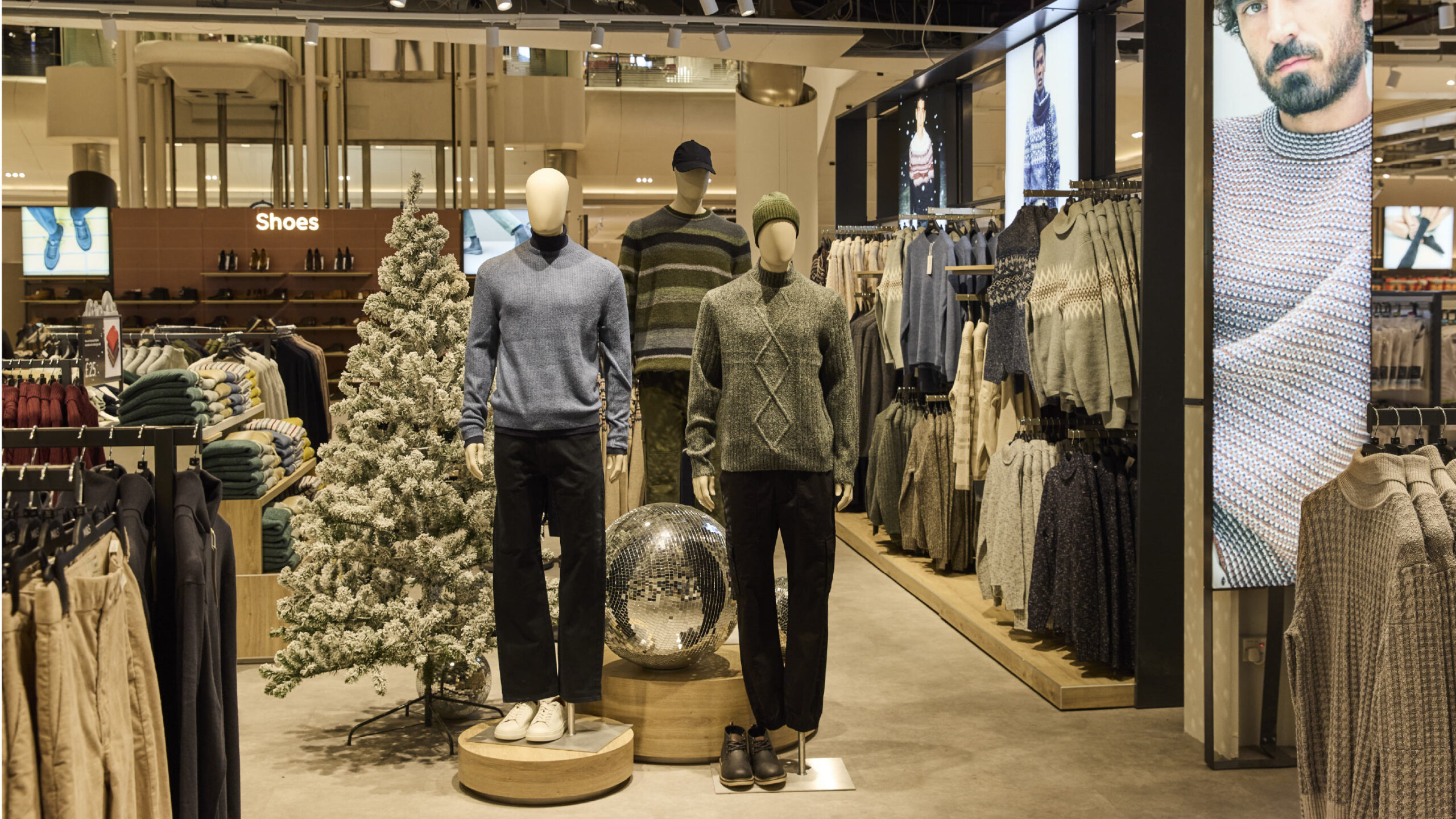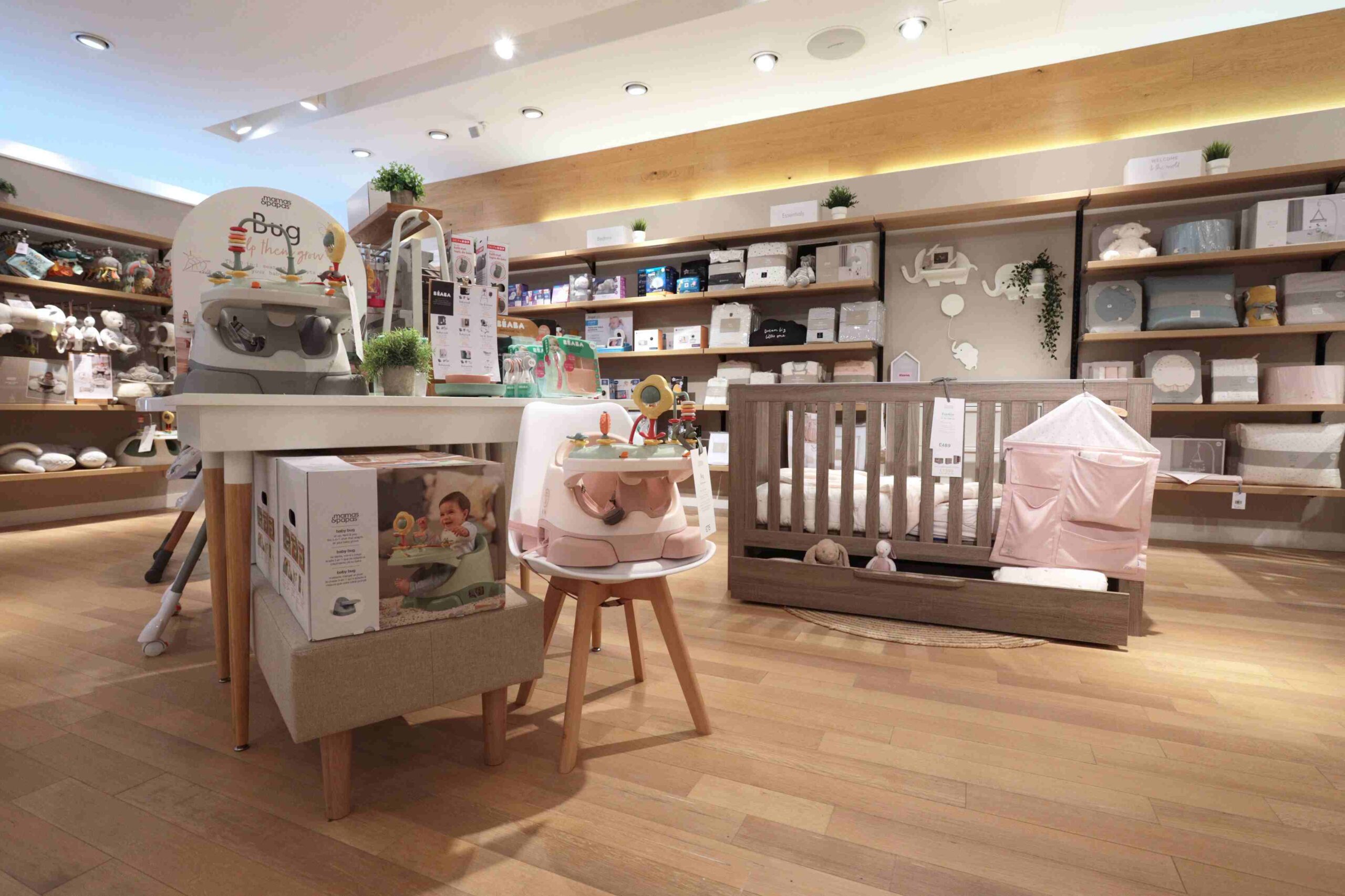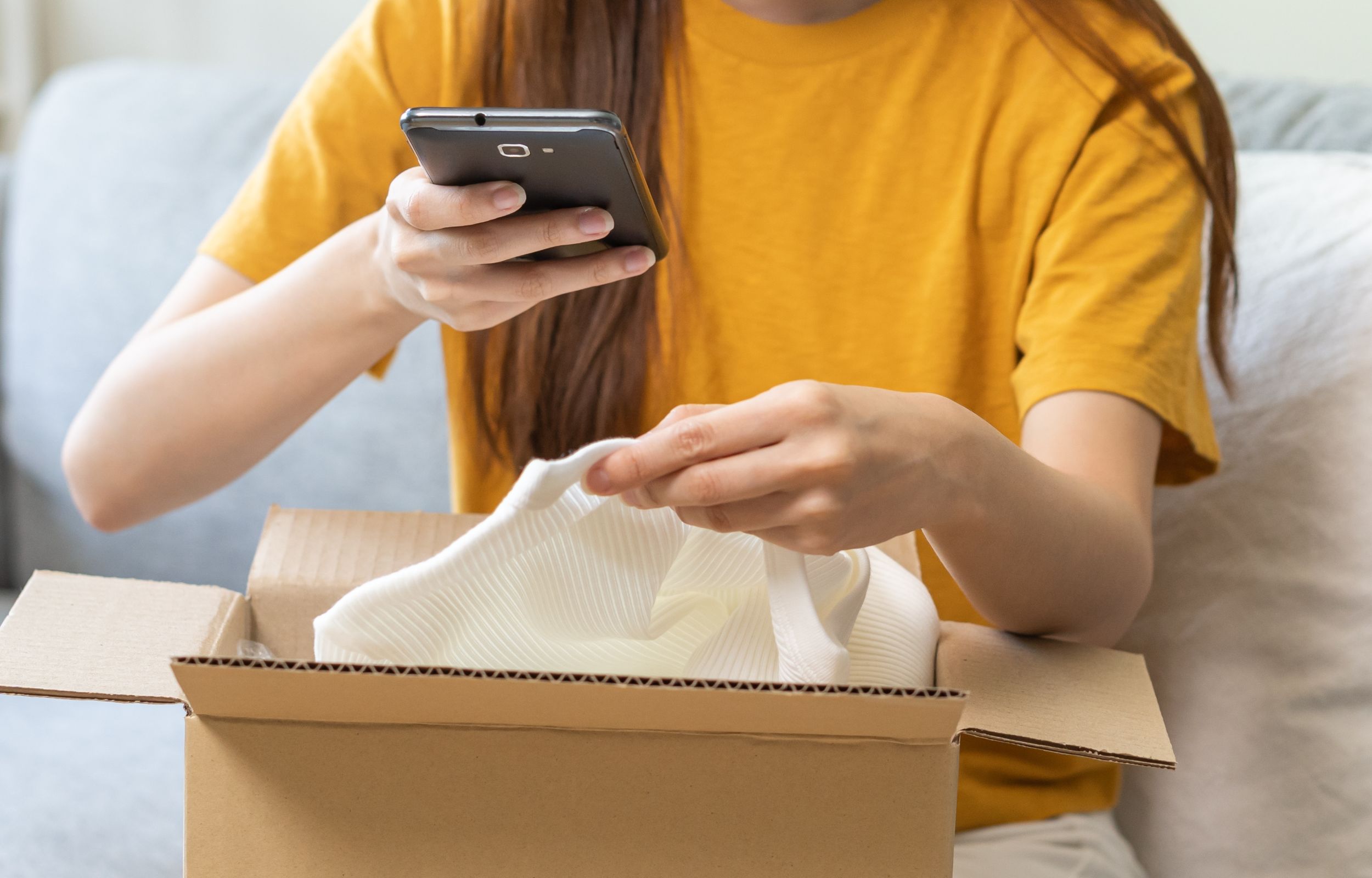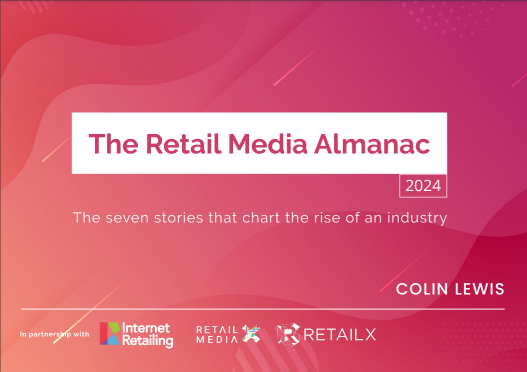InternetRetailing rounds up the latest news, insights and trends on how retailers and customers are responding to peak trading this year. In recent years pre-Christmas shopping has been at its highest over the Cyber Weekend of Black Friday to Cyber Monday, but the shape of this year’s shopping is likely to be different, since English non-essential shops are now closed until December 2 under a second Covid-19 lockdown, while in Scotland non-essential shops are closed in 11 Tier 4 areas including Glasgow, and Northern Ireland’s non-essential shops are closing for two weeks from today.
Non-essential shops are currently open in Wales.
This piece will be updated through the day, so do check back for more detail. The latest news will be at the top.
Black Friday big online – but across channels?
Barclaycard Payments says that across channels Black Friday payments were 16.7% down, by volume, compared to the same day last year. But it also suggests that the extent to which businesses adopted ecommerce during the first lockdown means the industry was better placed in the second.
Rob Cameron, chief executive of of Barclaycard Payments, says: “We’re now able to look at a full day’s worth of Black Friday sales, and as expected the number of transactions is down compared to last year. It’s important to note that transactions are still up considerably compared to the rest of lockdown, but the real focus now will be on Wednesday December 2– the end of the national lockdown in England – when we predict that shoppers heading back to the high street will bring about a ‘Black Wednesday’, with transactions likely surpassing what we’ve seen today.
“In what has been a difficult year for UK retail, I would like to congratulate businesses for the resilience and determination they have shown. Thanks to the lessons learned in the first lockdown, we have never had more businesses set up to take payments online, offsetting much of the drop in in-store sales over the past month. In fact, if businesses hadn’t taken those lessons on board and embraced ecommerce to the same degree, we believe that the overall drop in transactions could have been up to twice as large.”
• Visitor numbers to the UK’s shops fell by 77%, year-on-year, according to ShopperTrak footfall data from Sensormatic Solutions. Footfall was down by 98% in England alone, where non-essential shops were closed, but even in Wales, where shops were able to trade as usual, sales were 40% down on last year as shoppers bought online instead.
Andy Sumpter, Sensormatic Solutions’ retail consultant for EMEA, says: “Black Friday’s footfall wipe-out won’t come as a surprise, as England remains in the grip of a second national lockdown and shops remain closed. The real test for retailers comes as its non-essential stores reopen next week.”
He adds: ““We expect twice as many shoppers to hit the High Street in December as pent-up demand combined with a compressed Christmas shopping period will drive customers into store,” Sumpter continued. “More than ever before, the shopping public will rely on bricks-and-mortar retail to save the day for their last-minute shopping needs. The challenge of managing a condensed three-week festive shopping window, whilst keeping shoppers and colleagues safe, will be hard work, and may require some fun and festive spirit from all involved.”
• Shopify has some insights into the shape of online shopping. It says that 74% of sales in the UK were on mobile during the course of Black Friday – with 26% via laptop or desktop. Shoppers who bought from websites powered by Shopify spent an average of £60.85, with 20% of sales being made cross-border. The UK, says Shopify, was the third biggest selling country around the world, with the US and Australia coming in ahead.
Customers in London, Manchester, Bolton and Wigan led the way for buying, with the most-shopped categories led by clothing and accessories, health and beauty, home and garden, electronics and food and drinks. London also came second in the scale of city spending, passed only by Venon, California.
Retailers report busiest Black Friday ever – online
John Lewis says its online Black Friday sales are set to be 35% ahead of its busiest day in last year’s peak trading. It says it’s seeing shoppers buy earlier than usual, making 37% more searches than last year – dominated by new game consoles. The figures on based on data at 9am today.
Pippa Wicks, executive director for John Lewis says: “This Black Friday period has been like no other with just three of our shops open, but we’ve worked incredibly hard to meet the significant online demand we’ve seen this past week and to provide our customers with a wide choice of brilliant offers on the products they love.
“We are still offering hundreds of Black Friday deals this weekend and continue to monitor the prices of our high street competitors meaning that our customers can be sure we offer the best value on the high street throughout the Black Friday period and in the run up to Christmas. Preparations are well underway to reopen all of our shops in England next week and we look forward to welcoming our customers to help them make this Christmas extra special.”
The retailer says that since its Black Friday offers began on November 20 it has shipped more than 2.5m items – 67% up on the same time last year. The busiest hour on average has been 8pm to 9pm as people shopped earlier than in previous years with an average of 192 orders per minute. The busiest hour so far was 10am to 11am on the very first day of its Black Friday period (November 20) with an average of 258 orders per minute.
Total one-man deliveries were up 30% this year with standard home delivery up 72% and next and named day deliveries up 114%. There have been more than 18.7m product searches this year, 37% more than last year.
Shoppers started buying early at eBay UK, with two items from its Black Friday hub sold every second between 7am ad 12 noon. Sales, it says, spiked at 9am, with popular products including Lego Harry Potter, the Nintendo Switch and Dyson vacuum cleaners.
Murray Lambell, general manager of eBay UK, says: “The events of this year have driven an unprecedented shift to online, and this trend has continued into the Black Friday period as consumers look to capitalise on the best value deals. Already, the Nintendo Switch has proven to be one of the most popular products for the festive season, selling out in record time, and at peak, selling 1 every 4 seconds.
“We’ve seen a sustained surge in demand with consumers preparing for Christmas earlier than ever, and this morning we’ve seen a distinct shift in shopping patterns. With people largely working from home, we saw the first sales traffic peak on eBay UK at 9am, whereas last year we saw traffic hit much earlier, with commuters browsing deals on their phones on the way to work.”
Black Friday appears on track to break records
This Black Friday is set to be a record-breaking one, says Tony Preedy, managing director of the International Fruugo online marketplace. He says shoes, clothes and jewellery are among the top sellers around the world.
Halway through Black Friday in the UK, Fruugo says a handful of categories are overperforming as shoppers opt to buy during the day and are this year buying online.
Tony Preedy, managing director of Fruugo says: “With Black Friday not even done yet we can already say with confidence that it’s a record-setting event for us, and surely for many other online retailers as well. Our performance is a testament to consumers becoming increasingly accustomed to using marketplaces for online shopping, as it directs you to a wide range of products not easily found elsewhere all in one place – a benefit for shoppers looking for more unique or unusual products.
“As a marketplace focused on cross border sales we can also vouch for this being a truly global event, with demand for many of our top selling products coming from markets like Germany and the Netherlands. This is pushing retailers to start trading more across borders as they see the potential for growth by doing so.”
Meanwhile, affiliate network Awin says UK shoppers have bought strongly in the week leading up to Black Friday in categories including entertainment (+121% increase on the previous week), music and DVDs, photos and print services (+101%) and PC and video games (+99%).
The categories that sold most when analysed by volume including womenswear (+47%), clothing (+36%), health and beauty (+57%) and department stores (+11%).
Sales were up by 37% this week compared to the previous week – although in previous years, the coming Saturday and Sunday have been still bigger-selling days.
Joelle Hillman, retail client partner at Awin said: “It’s been a particularly unusual year for retailers, with some having to shut their physical doors for a long period of time and losing out on lots of sales, and others in the digital realm experiencing a huge increase in sales, putting them ahead of their sales forecast for the year.
“There’s never been a better time to have an ecommerce offering and this data backs that up. There have been over 90,000 online sales made through our partner department stores for Black Friday events alone.’
She added: “The event has become much more than just one day and we wouldn’t be surprised if this weekend will once again see a bigger sales growth – and even more discounts on offer for UK consumers to take advantage of.”
Clothing retailers discounting to sell stock
Clothing retailers have been particularly badly affected by this year’s Covid-19 lockdowns. Last week’s ONS Retail Sales report for October showed that clothing was one of only two categories – along with automotive fuel – where sales had still not recovered to pre-pandemic levels. But IMRG tracking of the category has shown sales in the sector have started to recover in the run up to Back Friday (see below).
That’s partly because their shops have been closed during both main lockdowns and social distancing measures mean that many do not give shoppers the chance to try clothes on. But it’s also because shoppers are now more likely to be working from home and do not see the need for formal workwear in the way they did previously.
That context is likely reflected in the level of today’s discounts. Asos is offering up to 70% off everything, in what it says is its biggest Black Friday deal ever, while Boohoo has gone several steps further with a dramatic up to 90% off everything. Its stablemates Karen Millen and Oasis are both offering up to 70% off everything.
Fashion brand Jigsaw, which has in previous years eschewed Black Friday, is this year offering 30% off many full-price clothing items in a Black Friday sale that ends on Monday. Among other clothing retailers, Gap is offering 50% off everything, while Zara is offering 40% off. Hush, by contrast, is not offering Black Friday deals today but is donating 20% of all the sales it makes today to Crisis.
Meanwhile, Top Shop and Topman, part of the Arcadia group that is today reported by Sky News to be close to administration, are both offering 25% off everything, while stablemate Burton is offering up to 60% off everything.
Assessing demand
Boots appears to have more demand than it can easily handle today, since it’s operating a queue system last seen during the first Covid-19 lockdown. That said, reaching the front of the queue took more than five minutes when InternetRetailing visited – much less than lockdown queues of an hour or more. Its message for those waiting reads: “Demand is high but stay where you are to avoid missing out. Thanks for your patience. We promise it will be worth the wait!” Once arrived, the retailer is offering 20% off beauty and fragrance and 25% off Mothercare clothing, among other offers.
The experience is in contrast to visits to clothing and department store retailers this morning. Whether that’s because demand is lower in those categories or because their website capacity is greater is not yet clear.
How are RXUK Top500 Elite retailers responding to Black Friday?
Amazon was one of the pioneers of Black Friday, back in 2010, when it and Asda both tested the water for an event that previously mostly took place in the US, where it falls straight after Thanksgiving.
Today the retailer is offering new deals as often as every five minutes, giving its customers a reason to keep coming back. It’s also emphasising its delivery capacity and its entertainment offer, offering free trials of Amazon Prime, Music and Video. Innovations include a small business gift finder, that shoppers can use to find present ideas from the small businesses that sell via Amazon Marketplace. It’s also running Black Friday Live entertainment from 6pm tonight, starting with a DJ set from Marvin Humes, followed by streamed events on each day over the weekend.
Black Friday dominates the home page at Argos. It is leading with offers on tech, appliances and Lego, with discounts of up to a third off. It’s emphasising its click and collect service alongside its customer loyalty scheme – shoppers can earn Nectar points – and flagging up add-ons including finance and warranties.
Dunelm is eschewing Black Friday as an event – although the concept does dominate its front page. It takes a witty approach, offering “Friday available in lots of colours” with the suggestion that since it offers “the same great value every day” there’s “no need to wait for a Friday in November”. It highlights its delivery and three-hour contact-free click and collect promises on its front page.
John Lewis is very much taking part in Black Friday, flagging up offers on home, fashion, electricals and gifts, and making it clear that click and collect is available. Offers are by fashion brand and by technology product, with up to 50% off Mulberry and between 20% and 25% off other fashion brands.
At Marks & Spencer, the focus is on festivities, with a ‘Here comes Christmas’ home page but there is no specific mention of Black Friday. There are discounts to be had, but these are rather ‘deals of the week’, including 40% off on some homewares, 30% off on some womenswear, and 20% off some beauty brands. Delivery and collection promises are flagged up clearly. M&S also has the advantage as an essential retailer that its shops are open and a banner tells shoppers they can buy with confidence in-store – although the detail shows that clothing floors are closed except where they provide access.
The emphasis on Next’s home page is on Christmas. Its Black Friday sale takes up only part of its home page – and that consists of a 30% off designer kidswear offer on its sister site, childsplay.co.uk. The retailer is flagging up unlimited deliveries and says it is open as normal – since click and collect is available in its stores.
Beyond the Elite, Currys PC World is hosting ’Black Fri-yay’, adding more deals to an event that has been underway for some time. As with other multichannel retailers, it’s flagging up the fact that shoppers can collect in store as well as ordering for home delivery. Unlike many others, it is also offering the chance for shoppers to talk to a member of store staff via video through its Shop Live service. Debenhams also has what it says is its biggest Black Friday half price sale yet, including deals on fragrances.
Black Friday expectations running high
Etail trade association IMRG says online retailers have been busy since lockdown began at the beginning of the month. Its ongoing ecommerce sales tracker finds that sales so far this month have grown by “some of the strongest growth rates we’ve seen this year,” according to IMRG strategy and insight director Andy Mulcahy. Speaking on an IMRG Black Friday webinar yesterday he said that clothing sales appeared to be recovering from the lows of the first Covid-19 lockdown. Sales growth has also continued in the home, garden and electricals categories, while premium sales have shown “astronomical growth”. Mulcahy said: “We’re staring down the barrel of economic disaster, and you might think people would tighten up on their spending, but actually premium is doing pretty well.” Last week, IMRG’s figures suggest, online sales were 56% higher than at the same time last year – and that, says Mulcahy, is a “massive growth rate” that is “far bigger than June”.
IMRG has tracked 320 websites in the run-up to BlackFriday As of yesterday, it says, more than half of those – at 161, or 52% – were running Black Friday specific discounts. That’s up from 48% in 2019. More retailers still (219, or 68%) were offering discounts, even though they may not be specific Black Friday discounts. And this year discounts are tending to be higher – with more retailers offering up to 60% off than did last year.
Fashion retailer and marketplace Zalando says it’s detected high levels of customer interest in fashion and clothing brands in the lead up to the event. It’s analysed Google search data to find that interest in the search term ’Furla Black Friday sale’ grew by 900% as early as between March and May. In the run up to the event, there were high levels of interest in searches including ’gap Black Friday sale’ and ’Jimmy Choo Black Friday sale’ (both+233%) and ’G star Black Friday sale’ and Swatch Black Friday sale’ (both +900%).
Tjeerd Brenninkmeijer, EVP, EMEA at Bloomreach sums up expectations for the day like this: “This year’s Black Friday is set to look a little different. Non-essential retailers remain closed as a result of the lockdown, meaning there will be no long queues outside physical stores that we have been accustomed to each year. Just because stores are closed, this doesn’t mean consumers won’t be looking to snap up Black Friday deals this year, and many will be looking online.”
Bloomreach is predicting online sales will grow by between 36% and 38% over last year’s peak trading season.
Previous forecasts include IMRG’s expectation that sales will grow by between 35% and 45% on November 27 – Black Friday – compared to Black Friday 2019, and the Centre for Retail Research’s prediction that shoppers will spend £73.4bn in the six weeks leading up to Christmas – 11.6% or £9.6bn less than at the same time last year. The expectation was downgraded following news of the current lockdown.
The CRR also expects that almost half of retail sales (48%) will take place online in the six weeks from November 22 to December 26, growing by £12.98bn or 58%. Shoppers are expected to spend an average of £1,049.01 each.
However there’s also doubt about how many retailers will take part in today’s shopping event. SMS communications specialist TextAnywhere questioned nearly 700 businesses in the UK and other European markets and found that more than half (55.4%) of those in the UK and Ireland still planned to run their Black Friday campaigns as they had previously planned, despite the effect of the pandemic. That said, 36.5% of businesses in those markets planned to cancel them altogether.








